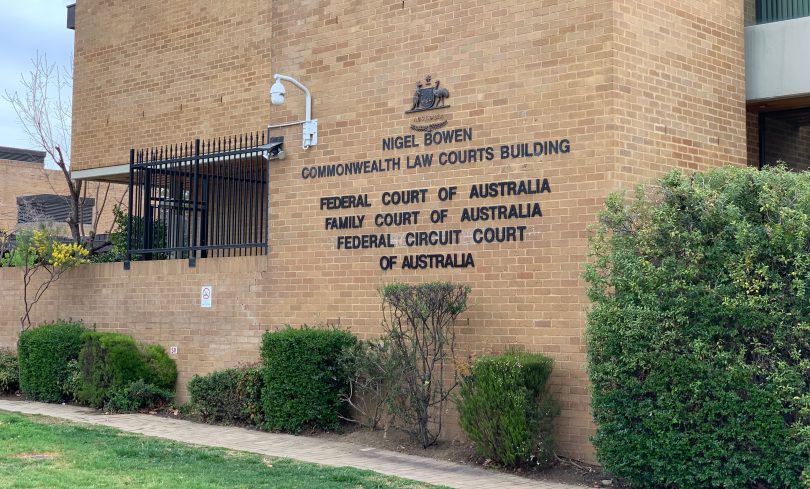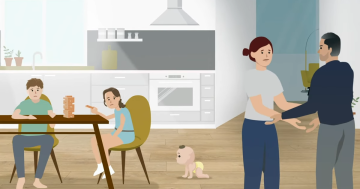
The Federal government has announced a second inquiry into family law. Photo: Region Media.
Recently Prime Minister Scott Morrison announced another enquiry into “the family law system”; this time, a Joint Select Committee Inquiry.
Chaired by Kevin Andrews MP, the government has indicated support for Senator Pauline Hanson as Deputy Chair. The Terms of Reference require the final report to be tabled by 7 October 2020.
This follows the Australian Law Reform Commission’s “root and branch” review of the family law system, the first in over 40 years. The ALRC report was delivered in March 2019 and released by Attorney-General Christian Porter in April.
That report contains 60 recommendations but the Government has not yet formally responded to any of them or even given a hint as to initiatives it might prioritise.
The ALRC received well over 1000 confidential responses, myriad public submissions and conducted multiple interviews. For the Prime Minister to suggest that the ALRC review was “for the lawyers” and that this inquiry was for “everyday Australians”, is baffling.

DDCS principal Di Simpson argues the new inquiry is not necessary, but reform is.
We don’t need another inquiry into family law but we do need politicians who are prepared to listen and change policy positions when it’s proven that they are wrong or doing harm to Australian families.
We need policymakers who will hear and act upon a range of reports and submissions, the product of thousands of hours or research and inquiry, demonstrating that family law courts have been starved of adequate funding for years, despite clear evidence they can’t keep up with demand.
A review of the performance and funding of the Federal Court of Australia, the Family Court of Australia and the Federal Circuit Court of Australia by KPMG in March 2014 showed that:
- The Courts’ financial and operational performance is a key contributor to a justice system that enables people to resolve their disputes and enforce their legal rights, and
- Access to justice shapes economic and social relationships between people, organisations and government, resolving disputes efficiently, improves certainty and reduces risks and costs; and enables the lawful, peaceful and fair resolution of disputes.
The same report notes the Courts were forecasting a $73.5 million deficit between 2014-15 and 2017-18. The current funding model is considered to be financially unsustainable and this government has failed to acknowledge or address that funding crisis.
Seventy per cent of couples reach agreement without going to court. Many only engage with dispute resolution services and lawyers to finalise and then formalise their agreed settlements.
Among those who may end up in the court system, we know that their situation will be more complex because of allegations of family violence, child abuse, alcohol or drug dependence issues, or mental health challenges.
Those families need a court system that responds appropriately (and swiftly) to allegations of violence and abuse or other family vulnerability, triaging them as high priority.
Waiting two or more years to have a final hearing is terrible, but sadly common around Australia when there are not enough judges to hear the cases or consultants/counsellors to write reports.
Legal aid funding has not kept pace with increasing demand and ‘the missing middle’ (of people who don’t qualify for legal aid but who can’t afford the costs of private representation) is ever-growing.
The number of people who now appear without a lawyer is increasing, adding pressure as the court bends itself to try to accommodate users who may not know the law, the rules or the processes required.
Many appeal cases now involve self-represented parties, too. Many of those appeals are not meritorious, adding strain to an already burdened system.
Lawyer bashing is common but misplaced. Lawyers look to help their clients find solutions and settlements as early as can be achieved. Going to court is seldom anyone’s preference, but is essential to ensure fair outcomes can be achieved and the rights of children are protected.
Lawyers are generous in their engagement in volunteer service. In the ACT, community legal centres (including the Women’s Legal Centre) depend upon the generous support of lawyers who volunteer their expertise in after-hours advice clinics.
The Law Society runs an advice bureau where lawyers assist people free of charge. Many firms provide generous pro bono legal advice and private lawyers undertake legal aid work at a rate well below their usual charges.
If governments want to be taken seriously by “ordinary Australians” facing the consequences of family breakdown, put some money into the system and stop looking for excuses.
The Law Council of Australia’s call for all parliamentarians to have family violence training is powerful. If they’re serious about better understanding the needs of Australians facing family breakdown then embrace the opportunity and listen to those with expertise.
Di Simpson is a Family Lawyer and Solicitor Advocate with Dobinson Davey Clifford Simpson, and was listed as pre-eminent in her field by the 2019 Doyle’s Guide.





















